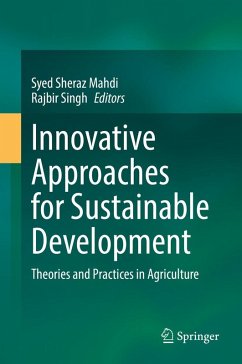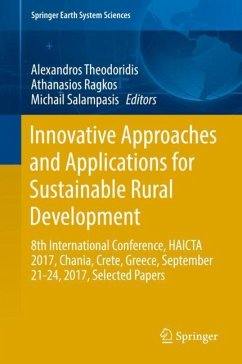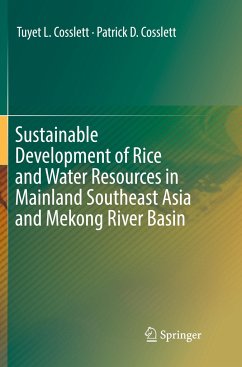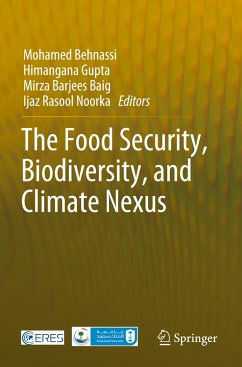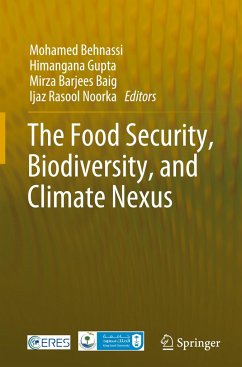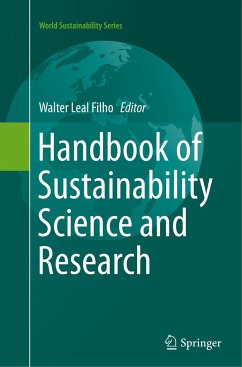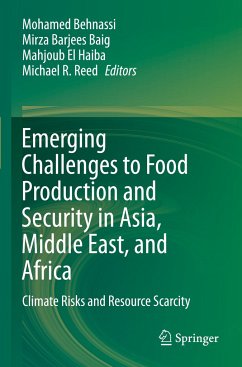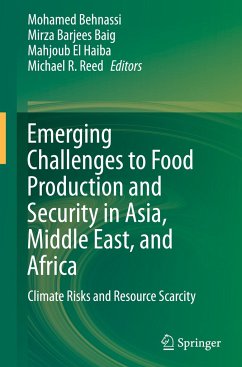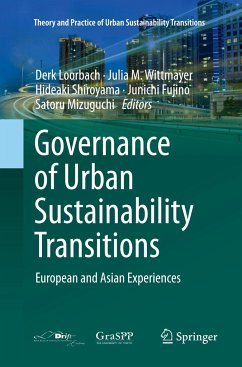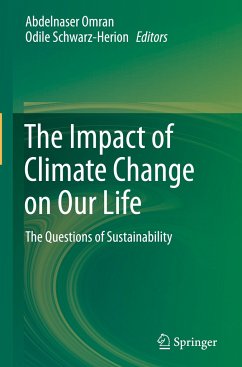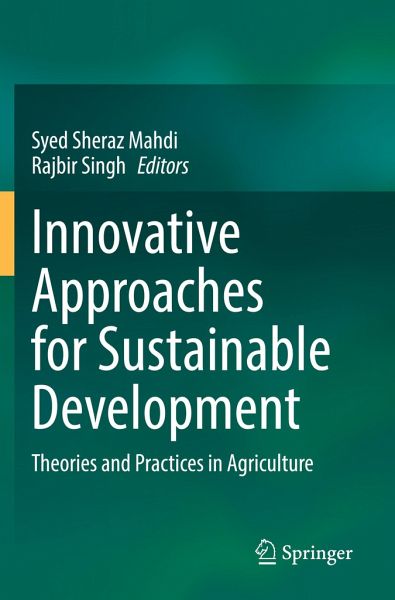
Innovative Approaches for Sustainable Development
Theories and Practices in Agriculture
Herausgegeben: Mahdi, Syed Sheraz; Singh, Rajbir
Versandkostenfrei!
Versandfertig in 6-10 Tagen
113,99 €
inkl. MwSt.

PAYBACK Punkte
57 °P sammeln!
This book provides recent understanding about the sustainable development in agriculture. It includes information regarding new approaches for sustainable development in agriculture, horticulture and fisheries. It examines the effect of climate change and provides information on climate smart practices. In addition, some important aspects like quality seed production, role of bioinoculants, on-farm water harvesting, non-thermal processing of food, importance of water use in organic agriculture have also been discussed. It also presents in detail plant disease aspect and their management strate...
This book provides recent understanding about the sustainable development in agriculture. It includes information regarding new approaches for sustainable development in agriculture, horticulture and fisheries. It examines the effect of climate change and provides information on climate smart practices. In addition, some important aspects like quality seed production, role of bioinoculants, on-farm water harvesting, non-thermal processing of food, importance of water use in organic agriculture have also been discussed. It also presents in detail plant disease aspect and their management strategies.
This book aims to provide an overall understanding of all aspects related to the study of environment resources, its protection for sustainable development. To meet the growing food demand of the over nine billion people who will exist by 2050 and the expected dietary changes, agriculture will need to produce 60 percent more food globally in the same period. The goalof sustainable agriculture is to meet society's food and textile needs in the present without compromising the ability of future generations to meet their own needs. Practitioners of sustainable agriculture seek to integrate three main objectives into their work: a healthy environment, economic profitability, and social and economic equity. Every person involved in the food system growers, food processors, distributors, retailers, consumers, and waste managers can play a role in ensuring a sustainable agricultural system.
This book aims to provide an overall understanding of all aspects related to the study of environment resources, its protection for sustainable development. To meet the growing food demand of the over nine billion people who will exist by 2050 and the expected dietary changes, agriculture will need to produce 60 percent more food globally in the same period. The goalof sustainable agriculture is to meet society's food and textile needs in the present without compromising the ability of future generations to meet their own needs. Practitioners of sustainable agriculture seek to integrate three main objectives into their work: a healthy environment, economic profitability, and social and economic equity. Every person involved in the food system growers, food processors, distributors, retailers, consumers, and waste managers can play a role in ensuring a sustainable agricultural system.





